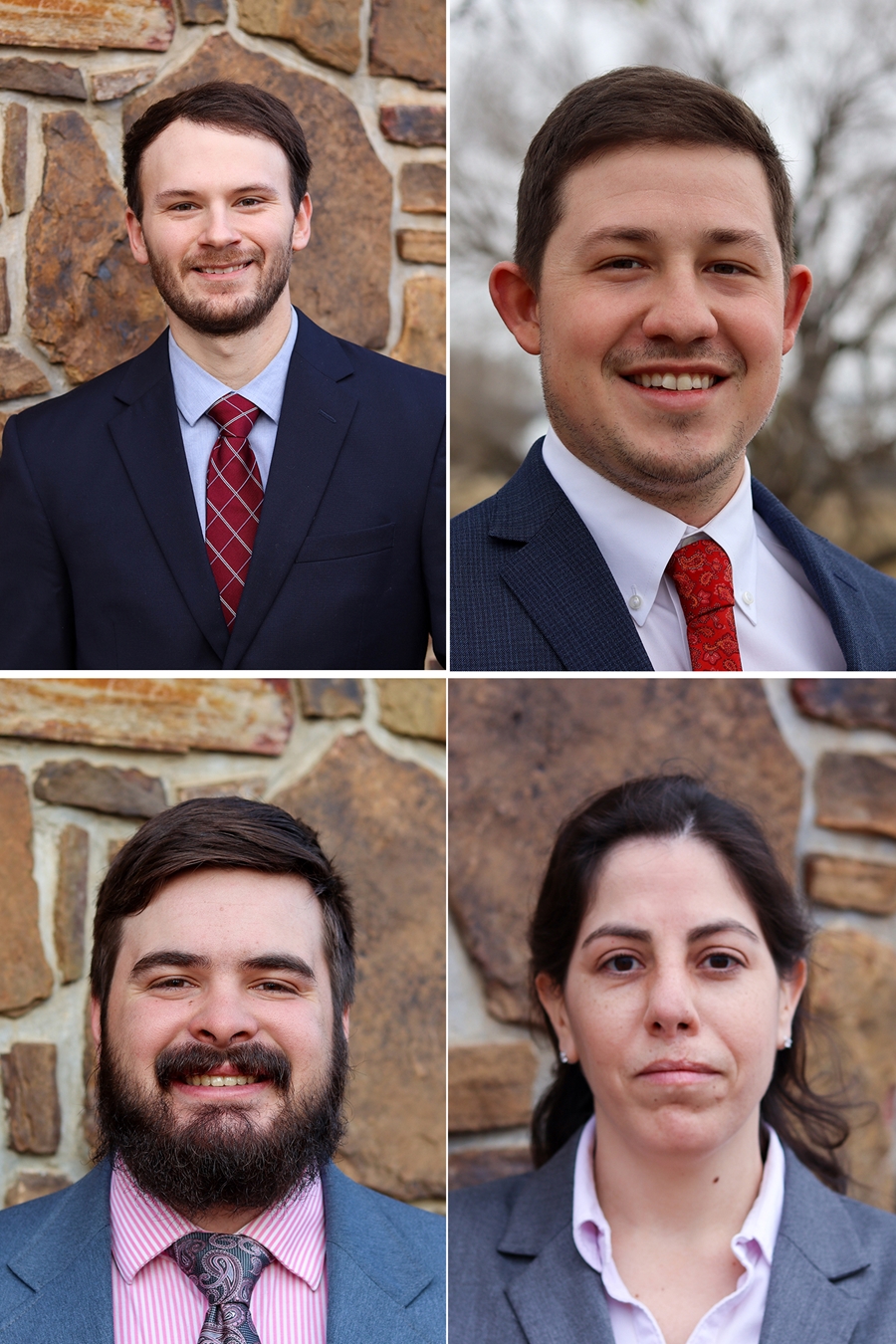Nine different graduate and undergraduate students from U of A's Department of Crop, Soil and Environmental Sciences recently combined for 21 awards, including eight first-place finishes, in three different contests.
Students competed at three virtual competitions, including the Weed Science Society of America meeting, the Beltwide Cotton Conference and the Southern Weed Science Society. All are part of Distinguished Professor Jason Norsworthy's weed science program in the Dale Bumpers College of Agricultural, Food and Life Sciences.
The WSSA meeting was held in February with 108 total students competing, and U of A's entrants combined for six awards. In the M.S. poster competition, section one, Pamela Carvalho Moore got first place. In the M.S. poster competition, section two, Bodie Cotter received first place and James Beesinger received third. In the Ph.D. poster competition, section three, Maria Zacccaro placed third. Tristen Avent and Rodger Farr placed first and second, respectively, in the M.S. three-minute thesis contest.
The WSSA was founded in 1956 with the mission to promote research, education and extension outreach activities related to weeds. It provides scientific-based information to the public and policy makers and fosters awareness of weeds and their impacts on managed and natural ecosystems.
Norsworthy's students also presented at the 2021 Beltwide Cotton Conference, all in the Weed Science Section, and earned six awards. In the Ph.D. oral presentation section, Mason Castner got second place and Lawson Pries, third. Jacob Fleming finished third in the M.S. oral presentation category. In the poster division, Priess won first, Castner was second and Farr, third.
Students also participated in the SWSS meeting in January. In the M.S. poster division, Avent earned first place and Farr, second. In the oral presentation M.S. division, Cotter and Moore won their sections, and Beesinger was second. In the oral presentation Ph.D. division, Zaccaro and Castner won their respective sections.
The SWSS's main objectives are to exchange ideas, experiences, opinions and information relative to weed science issues; discuss and plan a means of securing different methods of weed control; and coordinate efforts on weed research and control with federal, state and local agencies as well as private companies.
Avent, Beesinger, Castner, Cotter, Farr, Moore, Priess and Zaccaro won multiple awards with Castner and Farr leading the way with three each.
About the Dale Bumpers College of Agricultural, Food and Life Sciences: Bumpers College provides life-changing opportunities to position and prepare graduates who will be leaders in the businesses associated with foods, family, the environment, agriculture, sustainability and human quality of life; and who will be first-choice candidates of employers looking for leaders, innovators, policy makers and entrepreneurs. The college is named for Dale Bumpers, former Arkansas governor and longtime U.S. senator who made the state prominent in national and international agriculture. For more information about Bumpers College, visit our website, and follow us on Twitter at @BumpersCollege and Instagram at BumpersCollege.
About the University of Arkansas: The University of Arkansas provides an internationally competitive education for undergraduate and graduate students in more than 200 academic programs. The university contributes new knowledge, economic development, basic and applied research, and creative activity while also providing service to academic and professional disciplines. The Carnegie Foundation classifies the University of Arkansas among only 2.7 percent of universities in America that have the highest level of research activity. U.S. News & World Report ranks the University of Arkansas among its top American public research universities. Founded in 1871, the University of Arkansas comprises 10 colleges and schools and maintains a low student-to-faculty ratio that promotes personal attention and close mentoring.
Topics
Contacts
Faith Mills, communications intern
Dale Bumpers College of Agricultural, Food and Life Sciences
479-575-4625, robbye@uark.edu
